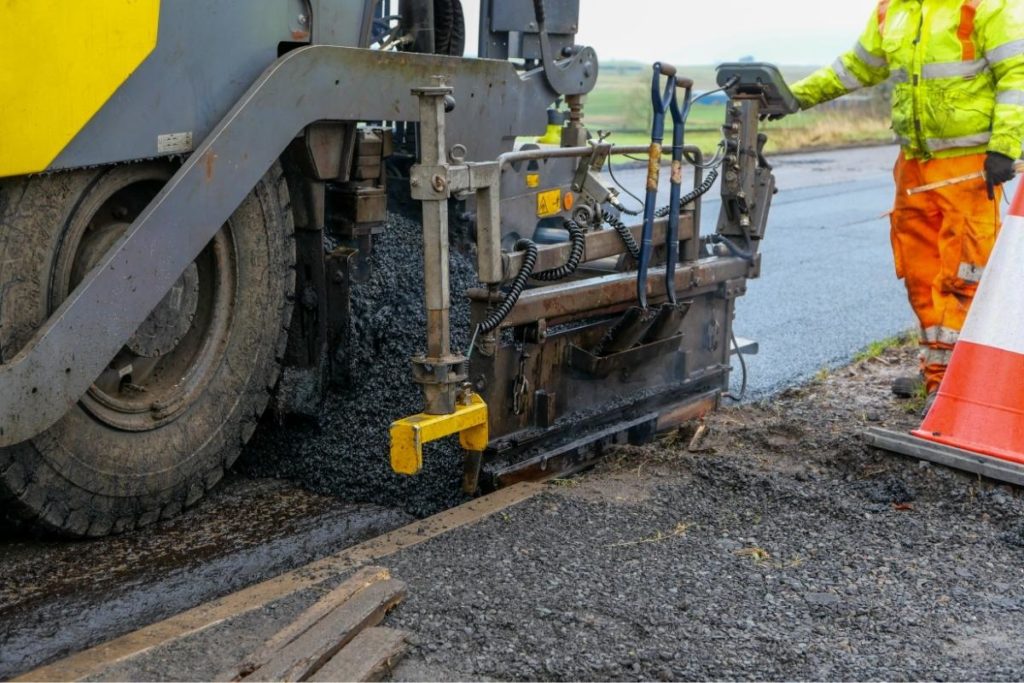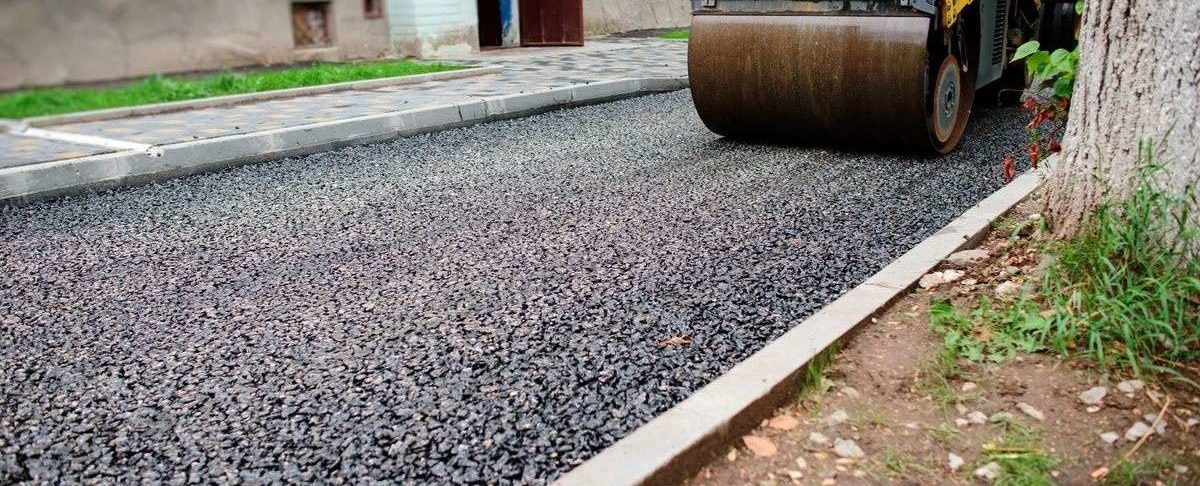Asphalt is one of the most commonly used materials for paving various surfaces, including roads, driveways, parking lots, and sports courts. Known for its versatility, durability, and cost-effectiveness, asphalt is an excellent choice for residential and commercial paving projects. However, not all asphalt is created equal. With various types available, it’s essential to understand the differences and know which one best suits your specific needs. This guide will walk you through the different types of asphalt and help you determine which is right for your next paving project.
The Five Types Of Asphalt
When considering asphalt, a common question arises: Is asphalt suitable for cold climates? Before deciding on your next project, it is essential to understand the five types of asphalt available.
Hot Mix Asphalt (HMA)
Hot mix asphalt (HMA) is the most commonly used asphalt type. It is created by heating asphalt binder to 300°F–350°F and mixing it with aggregates like sand and gravel. It’s applied while hot, forming a strong, durable surface. Due to its strength and longevity, HMA is ideal for high-traffic areas such as highways and airport runways. However, its production is energy-intensive and generates higher emissions, and it takes longer to cure fully, which can delay project completion.
Warm Mix Asphalt (WMA)
Warm mix asphalt (WMA) is an eco-friendly alternative to hot mix asphalt, produced at lower temperatures (200°F–275°F) with additives that keep the asphalt binder fluid. This reduces energy use and emissions. WMA is more straightforward to work with in cooler weather and hardens faster, speeding up project completion. While durable, it may not handle heavy traffic like HMA, making it better suited for residential driveways, small parking lots, and low-traffic areas.
Cold Mix Asphalt
Cold mix asphalt is a cost-effective option for smaller projects and temporary repairs, as it is produced at ambient temperatures without heating. It’s commonly used for patching potholes, resurfacing driveways, and quick maintenance. Its main advantage is ease of use, which can be applied directly from the bag without special equipment. However, cold mix asphalt is less durable and has a shorter lifespan, making it prone to cracking and wear, especially in high-traffic or extreme weather areas. It’s generally considered a temporary fix rather than a long-term solution.
Porous Asphalt
Porous or permeable asphalt is designed to allow water to drain through the surface, making it ideal for stormwater management. It uses larger aggregates and fewer fine particles, creating voids that allow rainwater to flow through and be absorbed into the ground. This type of asphalt helps reduce flooding and eases pressure on drainage systems. However, regular maintenance is required to prevent clogging of the pores, which can reduce its drainage capabilities. It may also be unsuitable for high-traffic areas, as wear can damage the surface and clog the pores. Porous asphalt is an excellent choice for residential applications or areas focused on water runoff management.
Mastic Asphalt
Mastic asphalt is a high-performance, specialized asphalt used in applications requiring enhanced durability and flexibility. Made with a higher proportion of bitumen, it is more resistant to wear and weathering. Commonly used in roofing, flooring, and waterproofing, Mastic Asphalt is durable, weather-resistant, and flexible, making it ideal for areas needing moisture protection or high foot traffic. However, due to its higher cost and specialized application, it is not typically used for standard roadwork or general paving.
Choosing the Right Asphalt for Your Project
Several factors come into play when selecting the right type of asphalt for your project, including the intended use of the paved surface, the climate in your region, and your budget. Here’s a closer look at how to choose the right asphalt for your needs.
High-Traffic Areas
If you’re working on a high-traffic area like a highway, busy intersection, or airport runway, hot mix asphalt (HMA) is typically the best choice. Its strength and ability to withstand heavy loads make it ideal for roads and surfaces that endure constant use. It also performs well in harsh weather conditions, ensuring long-lasting durability.
Residential Driveways
For residential driveways, warm mix asphalt (WMA) can be a cost-effective and environmentally friendly alternative to HMA. WMA is durable enough for lighter traffic and can be applied in cooler weather conditions. If environmental impact is a concern, WMA offers a more sustainable option for homeowners.
Small-Scale Projects and Repairs
Cold mix asphalt is an affordable and easy-to-use option for small-scale repairs or temporary solutions. It’s perfect for patching potholes or resurfacing small areas where heavy traffic is not a concern. However, it should only be considered a temporary solution, as it may not last as long as other types of asphalt.
Stormwater Management
If managing stormwater is a priority for your project, porous asphalt is an excellent choice. It allows water to drain through the surface, which helps reduce flooding and manage stormwater runoff. It’s ideal for parking lots, driveways, and other paved areas in regions with high rainfall or drainage issues.
Specialized Applications
If your project requires a high-performance material, such as waterproofing or flooring, mastic asphalt is the best choice. While it’s not commonly used for general paving, its enhanced durability and flexibility make it ideal for specialized applications that demand superior performance.
Which Type Of Asphalt Is Right For You?

Choosing the right asphalt ensures durability, longevity, and cost-effectiveness. Hot mix asphalt suits large, high-traffic projects, while warm mix offers an eco-friendly option for smaller jobs. Cold mix is perfect for quick repairs, and porous asphalt helps manage stormwater. Mastic asphalt is ideal for specialized, high-performance needs. Understanding these options will help you choose the best project for you. For more information on the types of asphalt, contact Richfield Blacktop today.




